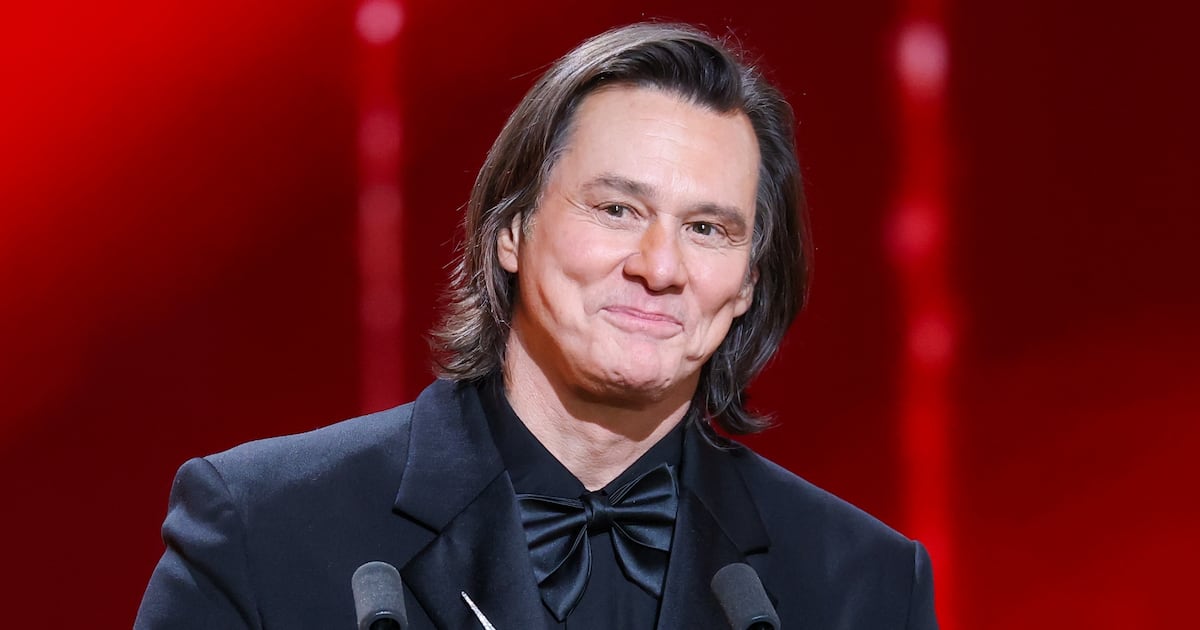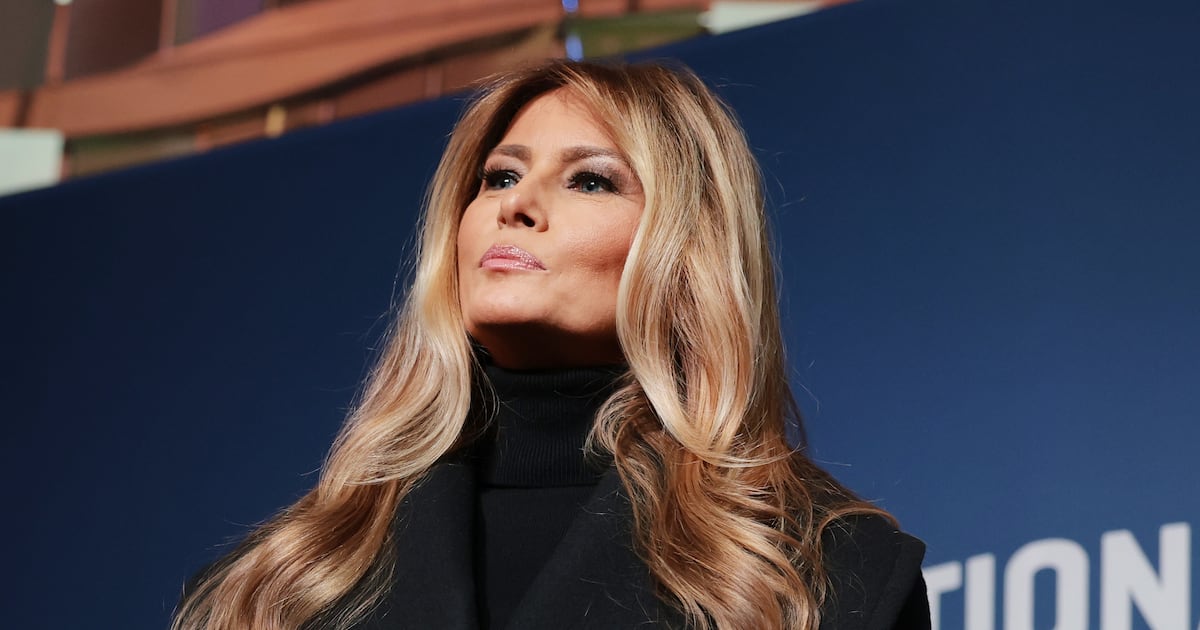On paper, Euphoria sounds anything but unique. Sam Levinson’s HBO drama might feature 1000 percent more dicks than your average teen show, but TV’s well of “horny, messed-up teens doing horny, messed-up things” shows already runs deep; frequent comparisons include series like The O.C., Skins, Degrassi, and Gossip Girl.
And yet, each week’s Euphoria—the virtuosic episodes and the messy ones—feels like a singular blend of dread and yearning, glamour and gore. Foreheads sparkle with rhinestones alongside broken noses that glimmer under fluorescent light; a teenage lover kisses another’s temples in the same spot they might later place a gun. Euphoria might have a lot in common with those other teen shows, but its aim feels different. With each installment, the series comes into its own as TV’s most haunting horror series—a bracing exploration of what it’s like to come of age at a time when every institution, including and especially family, appears to be crumbling.
Euphoria’s key ingredients—bad parents, scandalous behavior, explosive fights—can all be found in plenty of teen soaps. (Remember the time Julie Cooper had an affair with her daughter’s ex-boyfriend? And let’s not even get started on Bart Bass!) But even amid all of Degrassi’s school shootings and drug addictions, and all the terrifying gun incidents in The O.C., there remained a tiny streak of optimism and warmth. The teens’ friendships with one another, tumultuous as they might be, have consistently provided solace and support, regardless of what soap operatics might unfold around and through them.
No such luck in Euphoria. The show’s second season, especially, has been marked by narcissism and backstabbing. Cassie (Sydney Sweeney) has spent weeks spiraling in what she believes to be lovesickness for her best friend’s ex, Nate (Jacob Elordi)—and said best friend, Maddy (Alexa Demie), is now ready to kill her after finding out everything from Rue (Zendaya), who sold Cassie out in a moment of anger. Kat (Barbie Ferreira) is breaking things off with her nice-but-kinda-bland boyfriend by (badly) pretending to have a “terminal brain disorder.” And Cassie’s sister, Lexi (Maude Apatow), just aired out everyone’s gossip in a school play about her own so-called friends.
Most teen shows are about feeling failed by something or someone, but Euphoria takes that to the extreme; its characters embody what it’s like to feel let down by every single thing and person in one’s life.
It’s striking that the only remotely positive parental relationship in Euphoria is between Rue and her mother, Leslie—whom Rue terrorizes psychologically and physically every time she relapses. Nika King plays her character with pure-hearted conviction that pierces the screen, an unshakeable love and strength that viewers can nonetheless see takes a toll on her. Rue, who lost her father when she was 14 years old, was forced to grow up before she was ready, and in turn feels she’s grown into a disappointment. Accepting her mother’s care means facing what she’s done in the past—so instead, she often hits her or jumps out of a moving car.
Elsewhere, however? There’s not a single positive parental figure to be seen. It’s been strongly hinted that Nate’s father Cal (Eric Dane) molested his son as a child, in addition to statutory-raping Jules on camera last season. Lexi and Cassie’s mother, Suze (Alanna Ubach), seems more interested in her infinite glasses of wine than she does in providing helpful maternal support—and her treatment of Cassie, especially in later episodes, fluctuates between dismissive and derisive. Most other parents are dead or otherwise absent.
Rue kicked off Euphoria by noting that she was born just days after 9/11. That statement hangs over the series as a loss of innocence, a demarcation between the Clinton-era optimism most millennials grew up with and Gen Z’s bleak introduction to the world. Really, however, 9/11 feels less relevant to this series than what followed—a brutal war waged because of an institutionally sanctioned lie. These teens’ nihilism, the series consistently seems to postulate, stems from the pervasive feeling that nothing and no one can be trusted.
The psychological terror that underpins this series is difficult to overstate; The New York Times recently devoted an entire story to the show’s intensity. Being a teen, as many shows to which Euphoria is frequently compared have explored, is a volatile and often unpleasant exercise in negotiating raging hormones, uncanny conviction, and youthful inexperience, often to disastrous or humiliating results. Euphoria goes one step further, laying bare a vision of what it’s like to try and find oneself in a world you rightfully hate—one that, too often, makes you hate yourself even more.

Zendaya in Euphoria Season 2
HBOTo that end, the Fashion Nova-inflected fantasy of these characters’ clothes feels like a bold line drawn under the show’s central reality: These are kids doing their best to play-act as grown-ups, but none of them are all right.
Most teen shows observe high schoolers’ best attempts at cosplaying as adults in the absence of involved parents, but Euphoria ups the ante. Rue, the show’s most sensitive character and perhaps the least eager to “grow up,” is practically the only one of her peers who doesn’t appear club-ready 24/7. Cassie, Maddy, Kat, and Jules (Hunter Schafer), on the other hand, embrace fashion as armor—as a way to assert power, sexual autonomy, and self-ownership, even if they don’t fully understand what those things mean just yet.
But just as Euphoria explores the highs and rock-bottom lows of addiction, its costumes represent only one end of its aesthetic spectrum—and the other side is sheer, unadulterated body horror.
To this day, I shudder at the thought of a Season 1 episode in which Rue’s depression leads her not to urinate for days and her mother finds her writhing on the floor with a kidney infection. The fight scenes and violence in Euphoria are just as graphic as its sex—which is often also violent.
These constant violations—of trust, of the body, of the mind—are what make Euphoria so gutting to watch. I’m 30, so far be it from me to say how closely this glitter-coated series mimics real life for Teens Today. (Given my anthropological study of teens in the wild, I have some notes.) But it’s fascinating to consider the degree to which Euphoria discourse upon its season premiere focused on how perilous it is for adults, especially parents. If I had to guess, this horror show about the gap between acting like an adult and being an adult is even more perilous when you’re living it.







